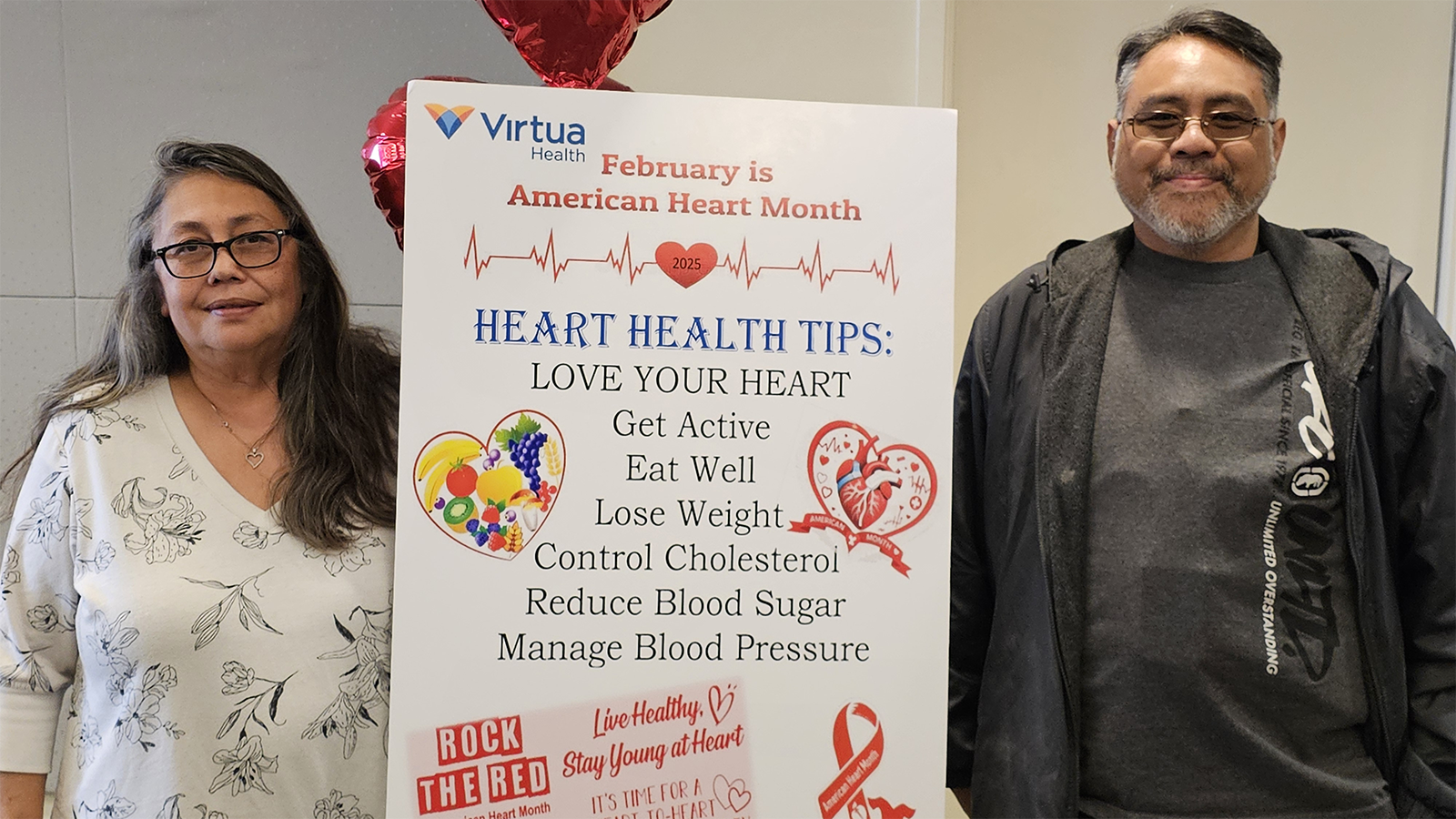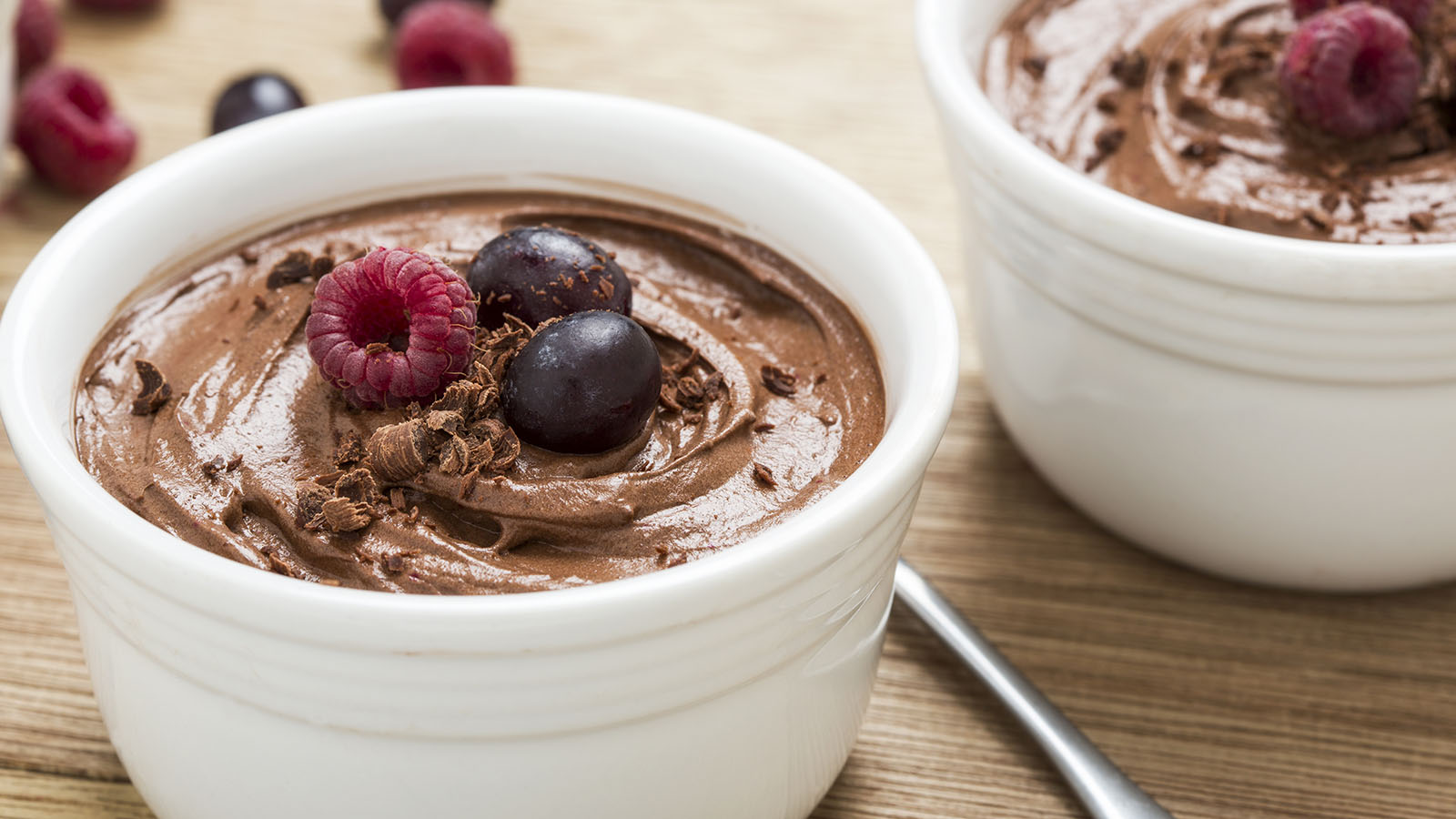Get to the Bottom of Blood Pressure Numbers
Which blood pressure number is more important? Both systolic and diastolic pressures can indicate risk for heart disease. Virtua Cardiologist Troy Randle, DO, explains more.
By Troy Randle, DO, Virtua Cardiology
Quick quiz: Which of your blood pressure numbers is more important? If you said the top one, you’d be only partially right.
For years, health care providers placed greater emphasis on the top number, or your systolic blood pressure. But recent studies have confirmed that the bottom number, your diastolic blood pressure, also plays an important role in determining your risk of heart attack and stroke.
Systolic and diastolic pressures are actually independent risk factors for cardiovascular disease. You can still be at risk if your systolic reading is normal but your diastolic is elevated, and vice versa.
What Is Your Blood Pressure?
When the heart beats, it creates pressure that pushes blood through your arteries, veins, and capillaries. This pressure is the result of two forces: the blood pumping out of the heart and into the arteries (systolic pressure), and the heart resting between beats (diastolic pressure).
Your blood pressure fluctuates throughout the day. It is affected by many things, including physical activity, foods, stress, and sleep.
When everything is working well, your blood vessels are constantly adapting to the body’s changing demands. They can become wider or narrower as needed.
This helps keep blood flowing freely, so any increases in blood pressure aren’t too large or long-lasting.
Why Does Your Blood Pressure Increase?
According to American Heart Association guidelines, normal blood pressure is less than 120/80 mmHg. You have hypertension if your systolic pressure is 130 and above, your diastolic pressure is 80 and above, or both.
Causes of high blood pressure include:
- Obesity or being overweight
- Eating a high-salt, high-fat diet
- Lack of physical activity
- Tobacco use
- Age
- Stress
- Family history
- Excessive alcohol use
- Having a condition like diabetes
How Do High Blood Pressure Levels Impact Your Health?
Chronic high systolic and/or diastolic blood pressure increases your risk of having a cardiovascular event such as a heart attack or stroke.
A study of 1.3 million people published in the New England Journal of Medicine found that systolic pressure above 140 increased the risk for heart attack and stroke by 18%. Diastolic pressure over 90 showed a 6% higher risk.
Diastolic blood pressure is an especially important measure in younger people, as their blood vessels should be more flexible. If diastolic blood pressure is elevated during the “relaxed phase” of the cardiac cycle— in between beats—it will go even higher as the heart is pushing blood through the arteries. In addition to heart attack and stroke, high diastolic blood pressure increases your risk for atrial fibrillation and heart failure.
It’s important to closely monitor your systolic and diastolic pressures and to take action when appropriate.
How Can I Lower My Blood Pressure?
Fortunately, medication and lifestyle changes can lower both numbers. Talk to your doctor about keeping your blood pressure in check.
Need Help Managing Your Blood Pressure?
Virtua’s experienced cardiologists can help you make the changes you need.
There's So Much More to Explore
Discover expert insights, inspiring stories, health tips, and more by exploring the content below!
5 Interesting Facts About Your Heart
Get to the Bottom of Blood Pressure Numbers

CABG Surgery: What Women Should Know About Heart Health and Healing

When to Take Action for a Stronger Heart

HeartTalk Magazine

Groundbreaking Renal Denervation Procedure Controls a Lifetime of High Blood Pressure

Patient Story: LVAD Mechanical Pump Strengthens Michael's Heart Function

Mitral Valve Surgery Keeps Yaneth Living the American Dream
Inside Look at Blood Vessels Aids PAD Treatment
Denise Davis: Pay Attention to Your Heart Health

What You Need To Know About Stroke Treatment

Sweet Music: Trust, Teamwork Save Justin from Heart Attack

Complex Heart Surgery Nets James a Lifelong Friend

Be Fast and Spot the Signs of Stroke

Surprising Symptoms May Signal Stroke In Women

8 Key Steps to Better Blood Pressure Control
Signs You Should Get Treated For Vein Problems

One New Heart Valve Saves Two Lives in the Tritten Family
What You Need to Know About Heart Failure

6 Numbers Key to Keeping Your Heart Healthy

Quick Action Leads to Jesse's Recovery From Stroke

Five Mindfulness Tips That Can Help Heal Your Heart

Watchman Heart Device: a Technological Breakthrough for Blood Clot Prevention

Albert's Emergency Cardiac Surgery Is a 'Story of a Lifetime'

Love Your Heart: Essential Care Tips for Every Stage of Life

How Do I Measure My Blood Pressure at Home?

How Do I Improve My Cholesterol Levels?

3 Ways to Reduce Your Stroke Risk

How the Unique Stages of a Womans Heart Affect Her Health

Can Your Gut Health Affect Your Heart?
Advanced Heart Failure Therapies Get Bernadine Back to Full Speed

Keeping the Beat: Advanced Heart Surgery for Aortic Aneurysm

Heart-Healthy Summer Recipe: Hummus and Veggies

4 Delicious Heart-Healthy Recipes Perfect for Summer

Heart Healthy Summer Recipe: Dessert Parfait

Heart-Healthy Summer Recipe: Pear and Walnut Salad

Heart-Healthy Summer Recipe: Terrific Turkey Burgers
Atrial Fibrillation and Stroke: What's the Connection?
Heart Tests Your Doctor May Order
Managing Pregnancy for Mothers With Heart Conditions

Heart Healthy Recipe: Basil Pesto Pasta With Seared Vegetables

Heart Healthy Recipe Chocolate Avocado Chia Pudding
Keep Your Heart Rhythm in Check With Your Smartwatch
Mind Your Meds for Blood Pressure Risks
Magic Pill for Heart Health? Cut 300 Calories a Day
3 Smart Ways to Boost Your Heart Health
3 Best Exercises For Heart Health

Get Your Heart Pumping With These 25 Workout Songs
Your Chest Pain: Heartburn, Heart Attack, or Something Else?
3 Heart Healthy Recipes to Win Valentines Day
How Work and Home Stress Can Affect You
Why Improving Your Health Is Going To The Dogs And Cats
Why Younger Women Need Start NOW To Safeguard Their Hearts From Heart Attacks
Can You Die of a Broken Heart?
Mitral Valve Surgery Opens Doors for Improved Quality of Life
6 Healthy Habits to Start in Your 20s for Better Lifelong Health
Do You Have a Fatty Heart?
Get Pumped! Assist Devices Can Improve Heart Failure Symptoms
A Cardiologists Advice on Heart-saving Emergency Cardiac Care
Virtua Doctor’s Experience Is a Warning for All About COVID-19 and Strokes
You May Feel Fine, but Gregory Says "Don't Skip Your Medical Care"
In Sickness and in Health: Couples Often Share Heart Disease Risk
"Reduce Your Heart Disease Risk With a Plant-based Diet"
Hybrid Robotic Heart Surgery and Valve Replacement Restores Quality of Life
Can Marijuana Hurt Your Heart Health?
6 Tips for Restoring Your Heart Rhythm
Eat Smart for Your Heart
Cardiac Rehab: Strengthening Your Heart After Leaving the Hospital
Your Heart Needs A Good Nights Sleep
Are You at Risk for AAA—the Silent Killer?
The Cardio Oncology Team Protects Your Heart During Cancer Treatment
Get Relief From Painful Varicose Veins This Summer
Exercise Your Way to a Stronger Heart
Fish Oil: A Good Catch or a Scam?
My Heart Seems to Skip a Beat - Should I Be Worried?
Menu Planning? Try These 5 Heart-smart Substitutions

5 Health Risks Tied to Weight

Heart-Healthy Recipe: Maple Orange Salmon With Mango Salsa
Do Not Wait to Get Help When a Stroke or Heart Attack Strikes
4 Reasons Why Heart Patients Should Follow COVID 19 Safety Guidelines

